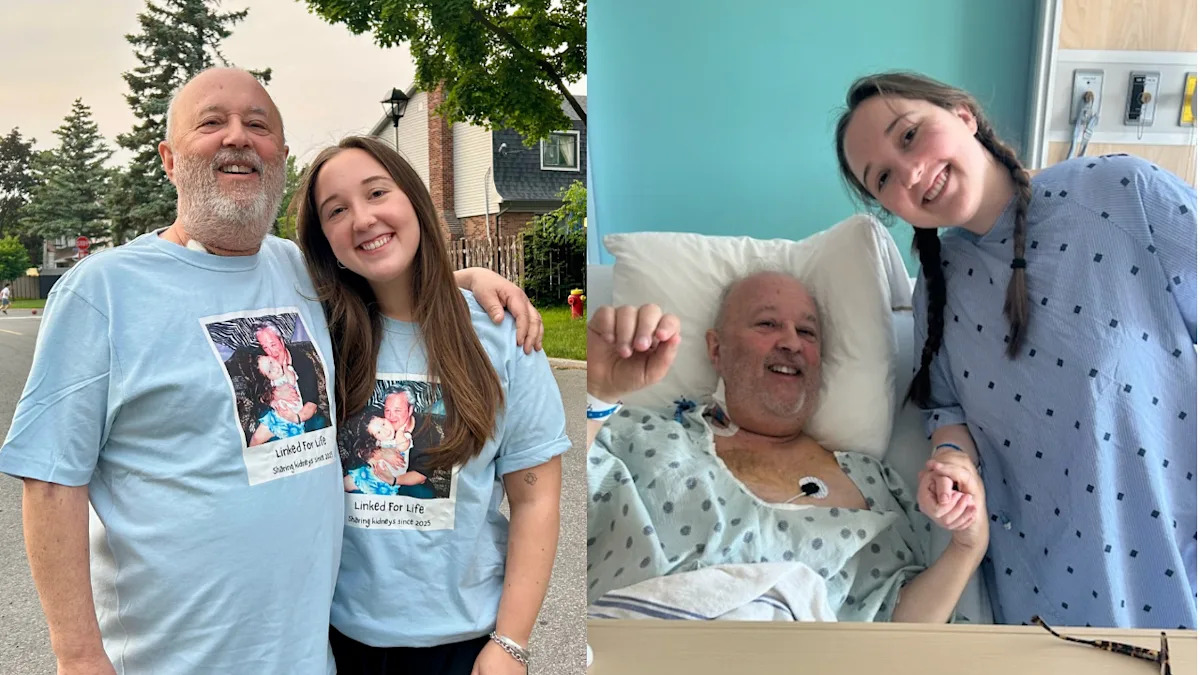This article is based on a conversation with Hailey Price. It has been condensed and edited for clarity and accuracy.
I was born on Father’s Day, and I’ve always been a bit of a daddy’s girl. Everyone I meet says I look exactly like my dad. I’ve even been stopped on the street by people I didn’t know and asked, “Are you Frank Price’s daughter?”
Ten years ago, my dad was diagnosed with a type of kidney disease called IgA nephropathy, also known as Berger’s disease. It’s caused by a buildup of a protein the body produces called immunoglobulin A (IgA). At first it didn’t affect him on a day-to-day basis, but we were told that his kidney function would slowly decrease as he got older. Eventually, he’d go into kidney failure, which would leave him in need of dialysis or a kidney transplant.
This article is for informational purposes only and is not a substitute for professional medical advice, diagnosis or treatment. Contact a qualified medical professional before engaging in any physical activity, or making any changes to your diet, medication or lifestyle.
His kidney function reached a new low in the fall of 2024. It became clear he would need a transplant — and soon. My dad’s two siblings stepped forward to get tested and see if they were a match, but I worried about what would happen if they weren’t. The organ transplant waiting list is long, and I didn’t want him to have to wait indefinitely.
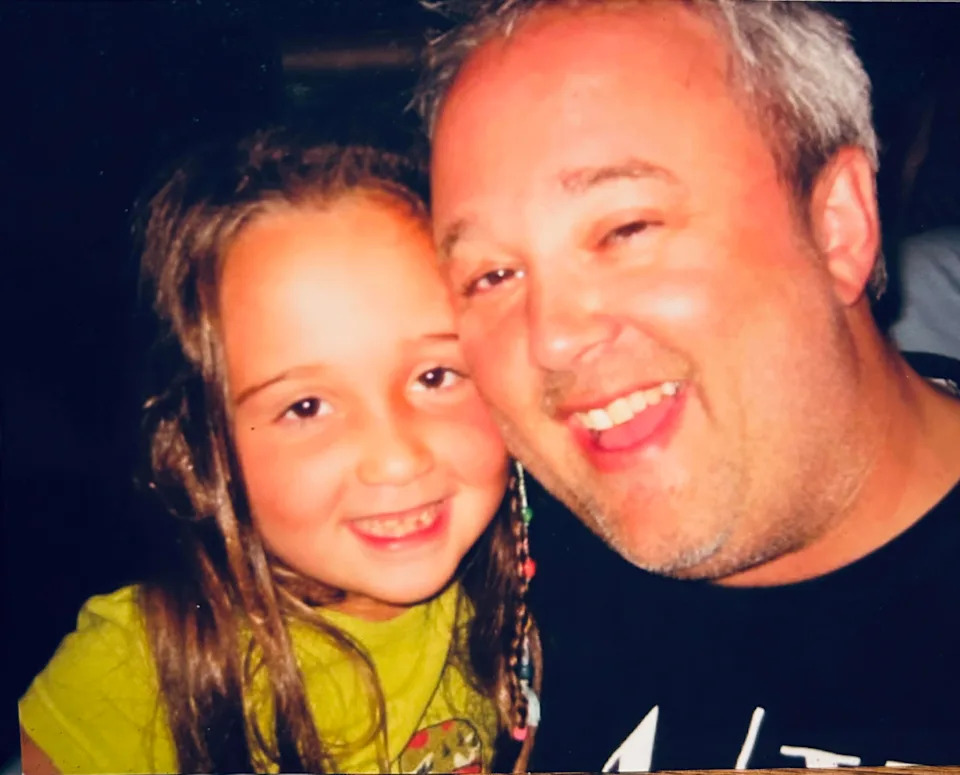
Price and her father, Frank, have always shared a special bond. (Image courtesy of Hailey Price)
I decided to be the backup plan in case my aunt and uncle weren’t viable donors. My dad is protective, so he didn’t want me to make such a sacrifice for him, but I knew someone was going to have to donate a kidney — why couldn’t it be me? He would do anything for me, and this felt like my opportunity to do something significant for him. After some research, I got in touch with the right people and eventually began the arduous process of getting tested.
The only option
I was lucky enough to grow up without experiencing any real health issues. I wasn’t exposed to hospitals, and I was always squeamish when it came to needles. Vaccines often left me light-headed, while tattoos and piercings always had me looking in the other direction.
All that to say, having to undergo the many tests required to donate an organ was daunting. I was determined to help my dad nonetheless, so I went through with the many blood tests, the CT scan, the MRI and the countless appointments.
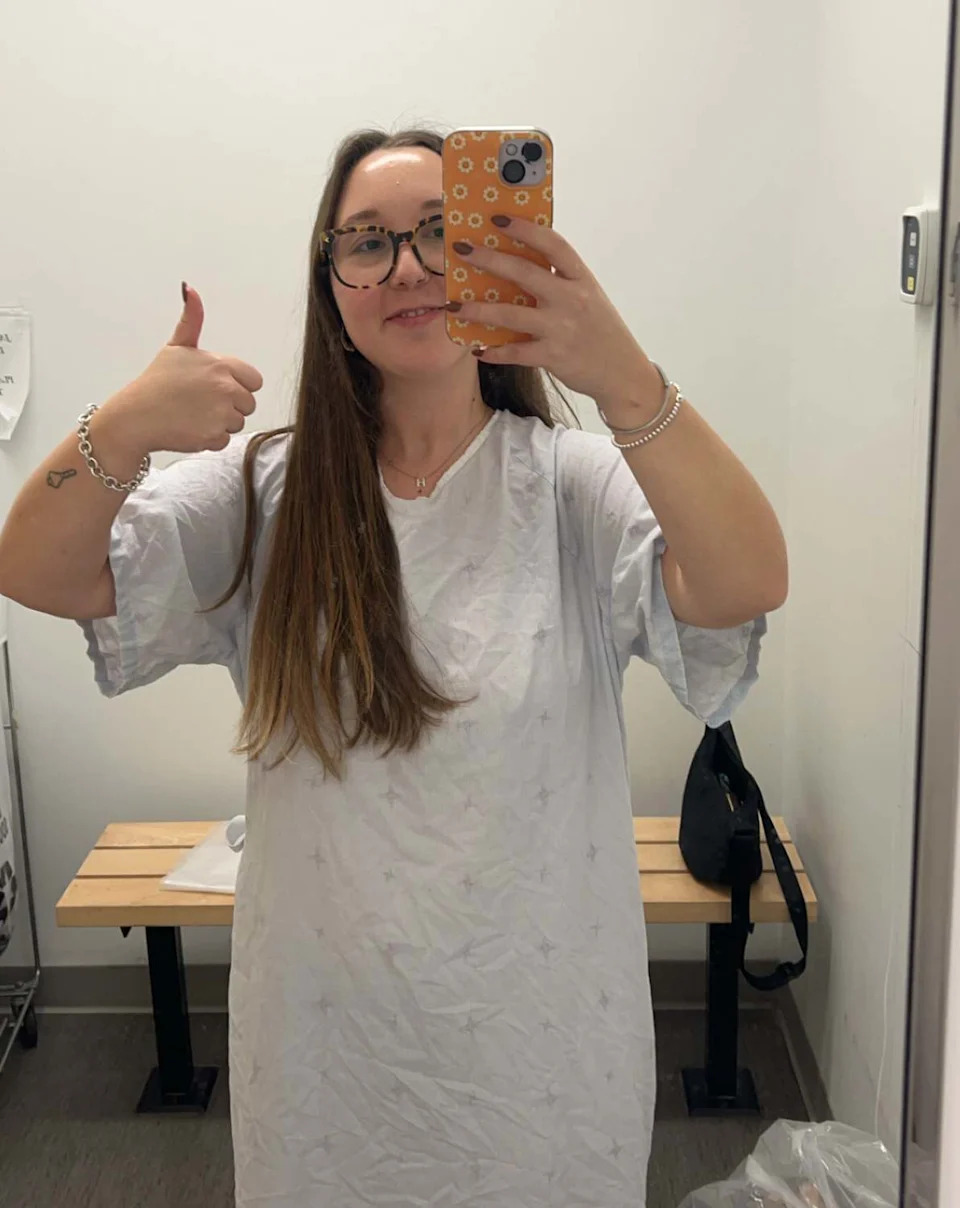
Hailey, who’s afraid of needles, underwent months of tests to ensure she was healthy enough to donate a kidney. (Image via Hailey Price)
The testing process was the most thorough full-body checkup I could have imagined. They not only conducted tests to ensure that I was a match with my dad, but they also had to make sure I was in good enough health to withstand the kidney donation. The reality, I quickly learned, is that when they scan your entire body, it’s very likely that they will find some kind of growth that may or may not be harmless.
Ultimately, after about four months of tests, the doctors determined that I was indeed a match and in good enough health to donate my kidney. As it turned out, my aunt and uncle weren’t suitable candidates, leaving me as the only option for a direct match.
Weighing the risks and benefits
I agreed to do the surgery in January, and then there were more blood tests to do. I also had to sit with the surgical team while they listed out all the possible risks to my health. They reassured me that the overall risks were low, but I was somewhat alarmed when I learned that I’d have a greater risk of high blood pressure during pregnancy. Hearing the words “higher risk” definitely spooked me at first. However, once I thought about it logically, I was able to reassure myself that my decision to donate was worthwhile.
Leading up to the procedure, I worried much more for my dad’s health and recovery than my own. I almost forgot I was part of the equation. I was so focused on him and his well-being that it served as a distraction from my own impending surgery.
It wasn’t until the morning of the operation, on May 27, that my nerves really set in.
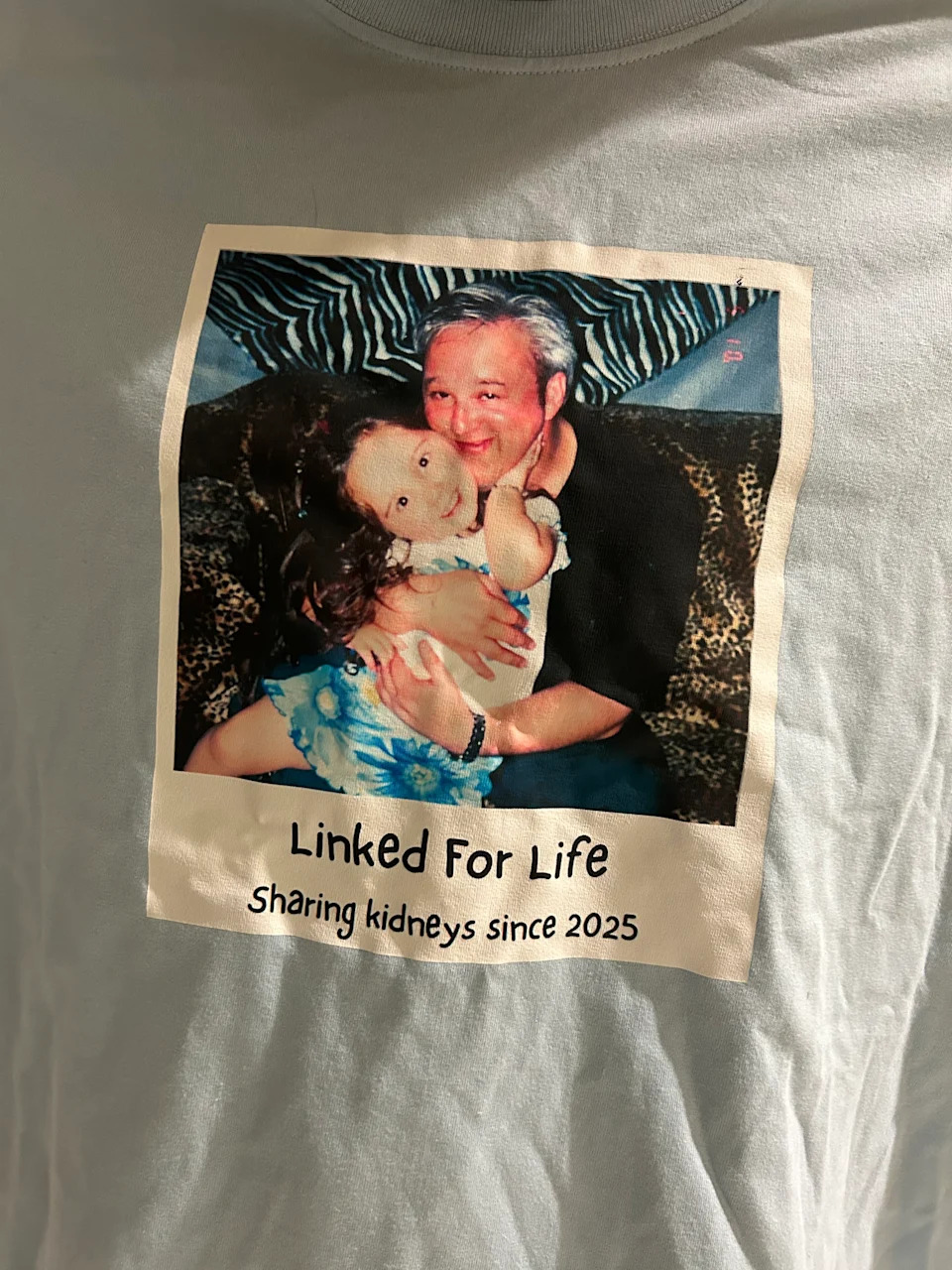
Price was hospitalized for three days after donating her kidney to her father. (Image via Hailey Price)
When I woke up from the surgery, everything felt foreign. I felt like I was in a movie. I’d never been under general anesthesia or on heavy-duty pain medication, nor had I ever been in a hospital bed. As an able-bodied young person, I felt odd asking nurses and orderlies for help with small things. That whole first day felt like an out-of-body experience.
I was also in more pain than I had anticipated. Because I was so focused on my dad and his surgery, I didn’t realize the toll it would take on my body. It was shocking and somewhat frustrating, especially because I don’t typically like asking for help or showing my family that I’m in pain. It was hard to just accept the state I was in and live in my body as it was.
My dad’s surgery was after mine, and even though I was drugged out and in pain, I was quite anxious about the transplant. Thankfully, both our operations went well, and they wheeled me over to his room once he was done, so we could see each other. It was such a relief.
‘I’m feeling completely back to normal…’
I stayed in the hospital for three days and two nights. I was happy to go home and be in my own space, with much better food, but climbing the stairs, getting off the furniture and using the bathroom were quite a challenge in those first few days. I was always uncomfortable, and I didn’t sleep well.
I had bad core pain in those first few weeks, which made doing most things painful. It finally started to subside around the three-week mark. That’s when I started feeling more like myself, although my energy was still extremely low. A five-minute walk left me exhausted and out of breath. Mentally, it was challenging that my body wouldn’t cooperate. I had days where I felt frustrated that I couldn’t do more, but I tried to maintain a positive attitude overall, which I think really helped my recovery process.
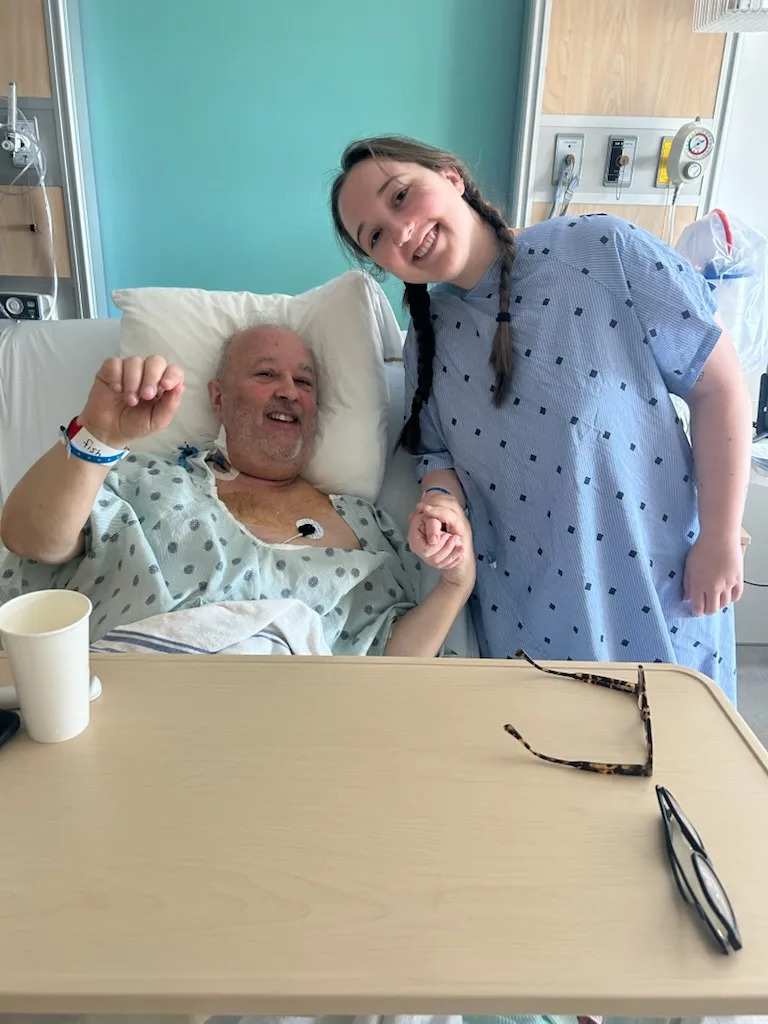
Hailey and her father were able to spend time together after the transplant. (Image via Hailey Price)
My dad’s recovery was shockingly smooth. He was in the hospital for longer than me, he was on more drugs and had to do more tests and be monitored more, partially because of his disease and receiving a new organ, but also because of his age (he’s 66) and overall health. He had to start taking anti-rejection medication, which he will be on for the rest of his life, but he still recovered incredibly well.
Almost five months post-surgery, I’m feeling completely back to normal and like myself again. I can work out, go for long walks and sleep on my stomach — one of the things I missed most in those first few weeks.
It’s hard for me to process that I’m the reason my dad is now in good health. It feels surreal, but when I actually take the time to sit down and think about it, it’s very empowering. It feels incredible that I was able to do something that essentially saved his life.
I’m proud that despite my nerves and lack of experience in medical settings, I was able to put my fears aside and just do it. It helped me realize that I’m stronger than I think. Doing something like this teaches you that you’ll do a lot for the people you love, and it will be so worth it.
Let us know what you think by commenting below and tweeting @YahooStyleCA! Follow us on Twitter and Instagram.

